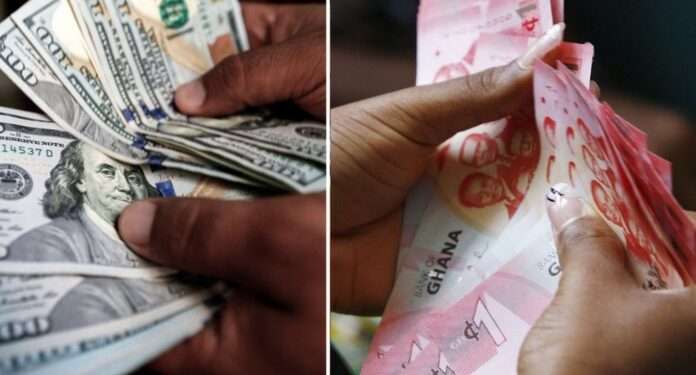Cedi to weaken by 30% against the greenback by end-2023
The sustained depreciation of the Ghanaian cedi reflects the country’s structural current-account deficit and higher inflation than its trading partners, according to the report. Furthermore, reserves are predicted to average 3.3 months of import cover over 2023-2027, just above the internationally regarded prudential minimum of three months.
- Advertisement -
The Ghanaian cedi is predicted to depreciate by 30% against the US dollar in 2023, according to a report by the Economist Intelligence Unit (EIU). This projection is slightly lower than the 44% depreciation that the local currency experienced in 2022. The UK-based firm highlighted that increased demand for hard currency due to high import prices, inflation, capital flight, rising profit repatriation by multinationals, and weak investor sentiment in the face of the ongoing debt crisis will drive the cedi’s depreciation.
The report further stated that the cedi’s fall would be slowed down comparatively in the second half of the year by the expected approval of an International Monetary Fund program and sustained fiscal and monetary tightening. However, the EIU expects further gradual depreciation in 2024-2027, to reach ¢14.70 to the dollar by the end of 2027. Although the pace of the depreciation is expected to be slower than in 2022-2023 as debt-restructuring uncertainties abate.
- Advertisement -
The sustained depreciation of the Ghanaian cedi reflects the country’s structural current-account deficit and higher inflation than its trading partners, according to the report. Furthermore, reserves are predicted to average 3.3 months of import cover over 2023-2027, just above the internationally regarded prudential minimum of three months.
- Advertisement -
As of May 2, 2023, the cedi began trading at ¢12.10 pesewas to the dollar on the forex or retail market. The currency is also selling at ¢14.98 to the pound and ¢3.00 to the euro. The report’s authors emphasized that the sustained depreciation of the cedi will have a significant impact on Ghana’s economy, including increased import costs, rising inflation, and higher external debt burdens.
- Advertisement -
The EIU’s predictions come at a time when Ghana is grappling with a mounting debt crisis. The country’s debt-to-GDP ratio has surged to over 80%, up from 70% in 2022. Ghana’s government has already announced austerity measures to reduce spending and boost revenue to address the debt crisis. Additionally, the government is seeking to restructure its debt by extending maturities and reducing interest rates to make it more manageable.
The IMF program approval expected in mid-2023 will also help Ghana address the debt crisis. The program will provide financial assistance and policy support to the country. The program’s approval will increase investor confidence in Ghana’s economy and help the country reduce its reliance on foreign borrowing, which has been a significant driver of the cedi’s depreciation.
The EIU’s predictions of the cedi’s depreciation highlight the challenges facing Ghana’s economy. The country needs to address its structural current-account deficit and high inflation to improve its economic performance. The IMF program approval, together with sustained fiscal and monetary tightening, will help address these challenges, reduce the cedi’s fall, and boost investor confidence in the country’s economy. Nonetheless, the sustained depreciation of the cedi will have significant implications for Ghana’s economic outlook, and the government must continue to implement policies that address the country’s debt crisis and improve its economic fundamentals.
Source: norvanreports.com
- Advertisement -


